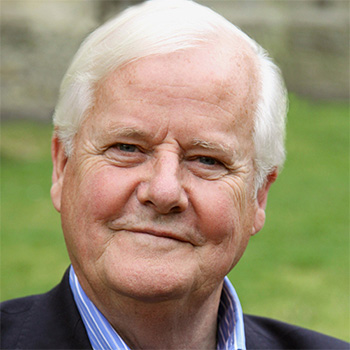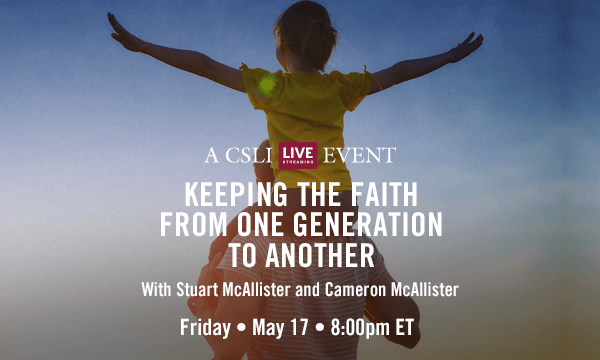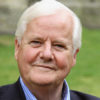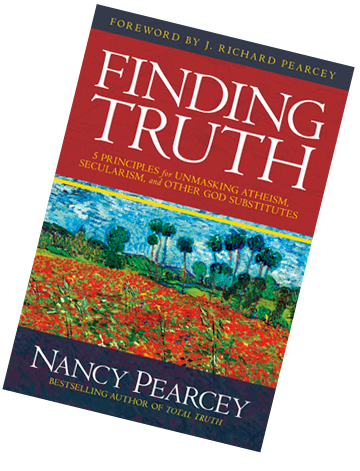Back to series



A Spirituality for the Two Halves of Life
Click here to open a Print - Friendly PDF
Faithfulness is the central issue for the church in our time because unfaithfulness is so rife in our culture. For all who follow Jesus, faithfulness to Him, to His lordship, and to His decisive stamp of authority on the Holy Scriptures should be final.
Yet postmodernism has undermined all authorities and certainties by making all claims “undecidable,” so we are experiencing a plague of Christians whom Søren Kierkegaard called “kissing Judases”—those who betray Jesus with an interpretation. They treat the authority of Scripture like a rubber nose and bend it to favor whatever cause or lifestyle they happen to like. “Anything goes” theology is the order of the day, and anything-goes ethics follows close behind.
In the fifth century, Saint Augustine protested against similar Manichean distortions of the Scriptures: “For you people who believe in the gospel what you choose to believe, and do not believe what you do not choose to believe, believe yourselves rather than the gospel.” Flannery O’Connor stated the point bluntly: “The truth does change according to our ability to stomach it.”
Richard Rohr’s Falling Upward must be read in the light of this atmosphere. The real surprise is not the book, but that it has been welcomed so undiscerningly by so many evangelicals around the country. The aim of the book is laudable: to provide a spiritual perspective on the journey into and through the second half of life.
With the graying of America as the baby boomers enter their “second half,” that aim gives the book its popularity, and its essentially New Age direction is no barrier to many American readers. The book is therefore perfect for people in the mood for “spirituality, not religion.” But why the evangelical enthusiasm when Rohr’s vision differs so starkly from the biblical vision?
First, Rohr’s notion of “spirituality for the two halves of life” is quite anti-biblical. He actually calls it a “second call.” You could never find such two halves of life in any of the great lives, such as Abraham, Moses, David, Daniel, Saint John, and Saint Paul. Nor could you justify it from the Scriptures or the orthodox Christian faith as a whole. The idea may be perfect for selling books and seminars to anxiously aging boomers, but it has nothing whatever to do with a decisively Christian understanding of the journey of life.
 Second, the notion of the two halves of life comes from Carl Gustav Jung and the “perennial tradition,” as Rohr admits. It also fits in perfectly with today’s mix-and-match syncretism and the idea of the common unity underlying all the world’s religions. So the real authorities and the main ideas for Rohr’s book come from fundamentally pagan and non-Christian sources—with an occasional doffing of the cap to Scripture.
Second, the notion of the two halves of life comes from Carl Gustav Jung and the “perennial tradition,” as Rohr admits. It also fits in perfectly with today’s mix-and-match syncretism and the idea of the common unity underlying all the world’s religions. So the real authorities and the main ideas for Rohr’s book come from fundamentally pagan and non-Christian sources—with an occasional doffing of the cap to Scripture.
Third, there is a striking and fatal omission in the book of any of the central truths of a Christ-centered spirituality, such as sin, repentance, the Holy Spirit, growth in the fruit of the Spirit, and above all Christ’s substitutionary death for us on the cross.
Rohr’s negative comments on Mel Gibson’s film The Passion of the Christ show that he subscribes to the views of the thirteenth-century philosopher-theologian Duns Scotus.
Rohr does not hold the orthodox view of such central doctrines as the cross and why Jesus died in our place, on our behalf, and because of our sin (as set out, e.g., in John Stott’s evangelical classic The Cross of Christ). Rohr’s cross is the very different cross of modern liberalism that Reinhold Niebuhr described so perfectly as “a God without wrath bringing men without sin into a Kingdom without judgment through the ministrations of a Christ without a Cross.”
Fourth, Rohr and his devotees appear oblivious to the glaring contradictions in his own argument. The second half of life, he says, is for reaching a higher and appealing “non-dualistic” type of thinking, whereby we achieve a holistic harmony that transcends the unfortunate dualism of our earlier lives. But to anyone who thinks as they read, it is obvious that his entire classification of the two halves of life is dualistic, and he never escapes it himself.
The truth is that, for all his attacks on dualism, Rohr is as dualistic as anyone because some distinctions are inescapable. (As Robert Benchley said, “There are two types of people in the world: Those who think there are two types of people, and those who don’t.”) But what matters is that his recommended non-dualism depends on a dualism between the two halves of life that has nothing to do with Jesus and the Bible.
Fifth, there is a serious ethical danger in Rohr’s teaching. His unbiblical division between the two halves of life allows him to caricature what he sees as the first half of life, focused on legalistic “purity codes” and “Thou shalt nots.” With this distortion in place, Rohr provides a permission slip for those who wish to break out of such constrictions and “leave their family” as an act of following the “second call” to become more free in the second half of life.
In other words, through his combination of caricature and false dualism, Rohr beckons people to a brand of freedom that Bonhoeffer called “cheap grace.” In the name of Jesus, he offers an alibi for actions such as divorce that are directly opposed to the plain teaching of Jesus.
In sum, Rohr’s Falling Upward is anti-biblical, non-Christian, and rooted in New Age thinking (often accompanied with Native American pagan practices), rather than being true to the teaching of Jesus and the Scriptures. The real question is why so many evangelicals are attracted to it.
In my experience, the answer is not that many of them needed to be freed from legalistic versions of the faith, as described by Rohr, but, rather, that they were already committed to a free form of the faith, one that was experiential and lacking in serious theological convictions, let alone a well-thought-out Christian worldview.
So they have easily been bewitched by such a latter-day “kissing Judas.” Faithfulness, as I said, is the crucial issue for the church in our times because of today’s mounting unfaithfulness and biblical illiteracy. Let us all read everything with eyes wide open and with discerning minds and faithful hearts—this review included.

Os Guinness
Author Os Guinness, is the author and editor of more than thirty books, including Fool's Talk, Renaissance, The Global Public Square, A Free People's Suicide, Unspeakable, The Call, Time for Truth, The Case for Civility and his most recent book, Zero Hour America. A frequent speaker and prominent social critic, he has addressed audiences worldwide from the British House of Commons to the U.S. Congress to the St. Petersburg Parliament. Guinness has had a lifelong passion to make sense of our extraordinary modern world and to stand between the worlds of scholarship and ordinary life, helping each to understand the other - particularly when advanced modern life touches on the profound issues of faith. (Photo By Deryck Chan 2013)
 COPYRIGHT: This publication is published by C.S. Lewis Institute; 8001 Braddock Road, Suite 301; Springfield, VA 22151. Portions of the publication may be reproduced for noncommercial, local church or ministry use without prior permission. Electronic copies of the PDF files may be duplicated and transmitted via e-mail for personal and church use. Articles may not be modified without prior written permission of the Institute. For questions, contact the Institute: 703.914.5602 or email us.
COPYRIGHT: This publication is published by C.S. Lewis Institute; 8001 Braddock Road, Suite 301; Springfield, VA 22151. Portions of the publication may be reproduced for noncommercial, local church or ministry use without prior permission. Electronic copies of the PDF files may be duplicated and transmitted via e-mail for personal and church use. Articles may not be modified without prior written permission of the Institute. For questions, contact the Institute: 703.914.5602 or email us.
-
Recent Podcasts
A Welcome Change in Apologetics
by Randy Newman, Aimee Riegert on April 19, 2024We’re burdened for our friends who don’t know...Read More
-
Questions That Matter Podcast – Samuel James and Digital Liturgies
by Samuel James, Randy Newman on April 19, 2024
-
The Side B Stories – Dr. James Tour’s story
by Jana Harmon, James Tour on April 12, 2024
-
Recent Publications
Isn’t Morality Relative?
by Christopher L. Reese on April 1, 2024It is widely accepted in the Western world...Read More
-
Do Muslims and Christians Worship the Same God?
by Andy Bannister on March 1, 2024
-
Artificial Intelligence and Its Impacts on Humanity
by John Lennox on February 13, 2024
0
All Booked
0.00
All Booked
0.00
All Booked
22140
GLOBAL EVENT: Keeping the Faith From One Generation To Another with Stuart McAllister and Cameron McAllister, 8:00PM ET
https://www.cslewisinstitute.org/?event=global-event-keeping-the-faith-from-one-generation-to-another-with-stuart-mcallister-and-cameron-mcallister-800pm-et&event_date=2024-05-17®=1
https://www.paypal.com/cgi-bin/webscr
2024-05-17

Next coming event
Days
Hours
Minutes
Seconds
GLOBAL EVENT: Keeping the Faith From One Generation To Another with Stuart McAllister and Cameron McAllister, 8:00PM ET
On May 17, 2024 at 8:00 pmSpeakers

Os Guinness
Author
Team Members

Os Guinness
AuthorOs Guinness, is the author and editor of more than thirty books, including Fool's Talk, Renaissance, The Global Public Square, A Free People's Suicide, Unspeakable, The Call, Time for Truth, The Case for Civility and his most recent book, Zero Hour America. A frequent speaker and prominent social critic, he has addressed audiences worldwide from the British House of Commons to the U.S. Congress to the St. Petersburg Parliament. Guinness has had a lifelong passion to make sense of our extraordinary modern world and to stand between the worlds of scholarship and ordinary life, helping each to understand the other - particularly when advanced modern life touches on the profound issues of faith. (Photo By Deryck Chan 2013)





